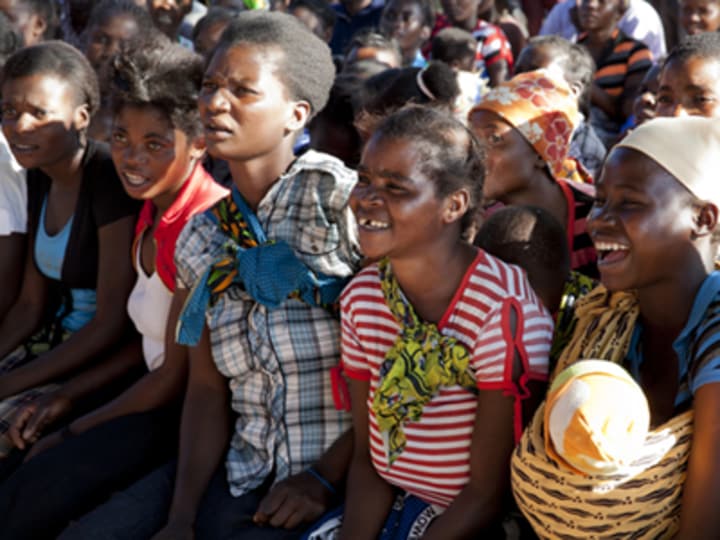
Within a few days, thousands of members of the global family planning community will come together in Addis Ababa, Ethiopia to talk about ways to advance the health and economic well-being of women worldwide by improving the delivery of family planning services and information.
However, there is a larger set of issues we must face to promote better family planning globally — policies and social norms that continue to keep women and girls from having the same opportunities as men. Until these underlying social barriers are removed, our efforts to improve access to family planning will not achieve their full potential.
Pervasive gender norms that create an unequal playing field for women and girls are one of the key social barriers to the use of family planning services. These norms play out in different ways over a woman’s lifetime, and when left unchecked, we see the opportunities for girls and women get smaller and smaller.
Here are four barriers or practices that must end to address the health and well-being of individuals, families, and nations:
1. Lack of education
While significant progress has been made in achieving gender parity in educating girls and boys, inequalities still exist in many nations. Educating women and girls is perhaps the single most important factor in ensuring women have improved access to family planning services and information. When girls stay in school, especially to the secondary level or more, they are less likely to get married and have children at a young age. Girls with secondary education or higher have fewer and healthier children.
2. Economic inequalities
There is little doubt that improved access to family planning can provide economic benefits to women and communities. But policies that continue to create economic inequalities for women, such as limiting inheritance or owning property, also must be addressed to provide women and girls the opportunities to climb out of poverty and take control of their own reproductive health. Similarly, norms that limit women’s access to information and restrict them to the home lessen their opportunities to contribute to family well-being and force them into traditional gender-based roles.
3. Ending son preference and other discriminatory practices against girls
According to the World Bank, 1.5 million girls are “missing” at birth because of sex-selective abortion. The preference for boys over girls is sadly still pervasive in many societies, demonstrated through practices such as female infanticide, providing insufficient food to girls, removing girls from school at a young age and sex-selective abortion.
To change this, not only must we better understand the extent of the problem, but we must enforce policies that prohibit them and support policies to address gender equality. For example, one country that has had success in reversing the trend of sex-selective abortion is South Korea, which imposed harsh penalties for the abuse of ultrasound and other technologies for sex determination; at the same time, civil society led a transformation of traditional gender roles and norms, which was fostered by urbanization and better economic opportunities for women.
4. Eliminating child marriage
In South Asia alone, nearly 10 million girls are married before the age of 18. Child marriage, which is deeply rooted in many social and cultural norms and is heavily influenced by poverty, is a major factor in gender inequality for women. Solving this problem is an important step toward removing the barriers that keep women from getting a good education and making the reproductive choices that are vital to their health.
Better access to family planning is critical to improving the lives of women and girls around the world. But to do so, we have to remember that making family planning accessible is more complex that making providers and supplies more convenient.
These social and economic barriers are global, and their solutions need to be tailored to respond to local social norms and behaviors. While there is no single solution to solving these underlying issues, we must recommit to addressing the persistent social policies and gender norms that continue to keep women on unequal footing.
Let’s put women at the center of policies — addressing everything from economic opportunity to education — to truly achieve a world where women can reach their full potential.
Join the Devex community and gain access to more in-depth analysis, breaking news and business advice — and a host of other services — on international development, humanitarian aid and global health.




